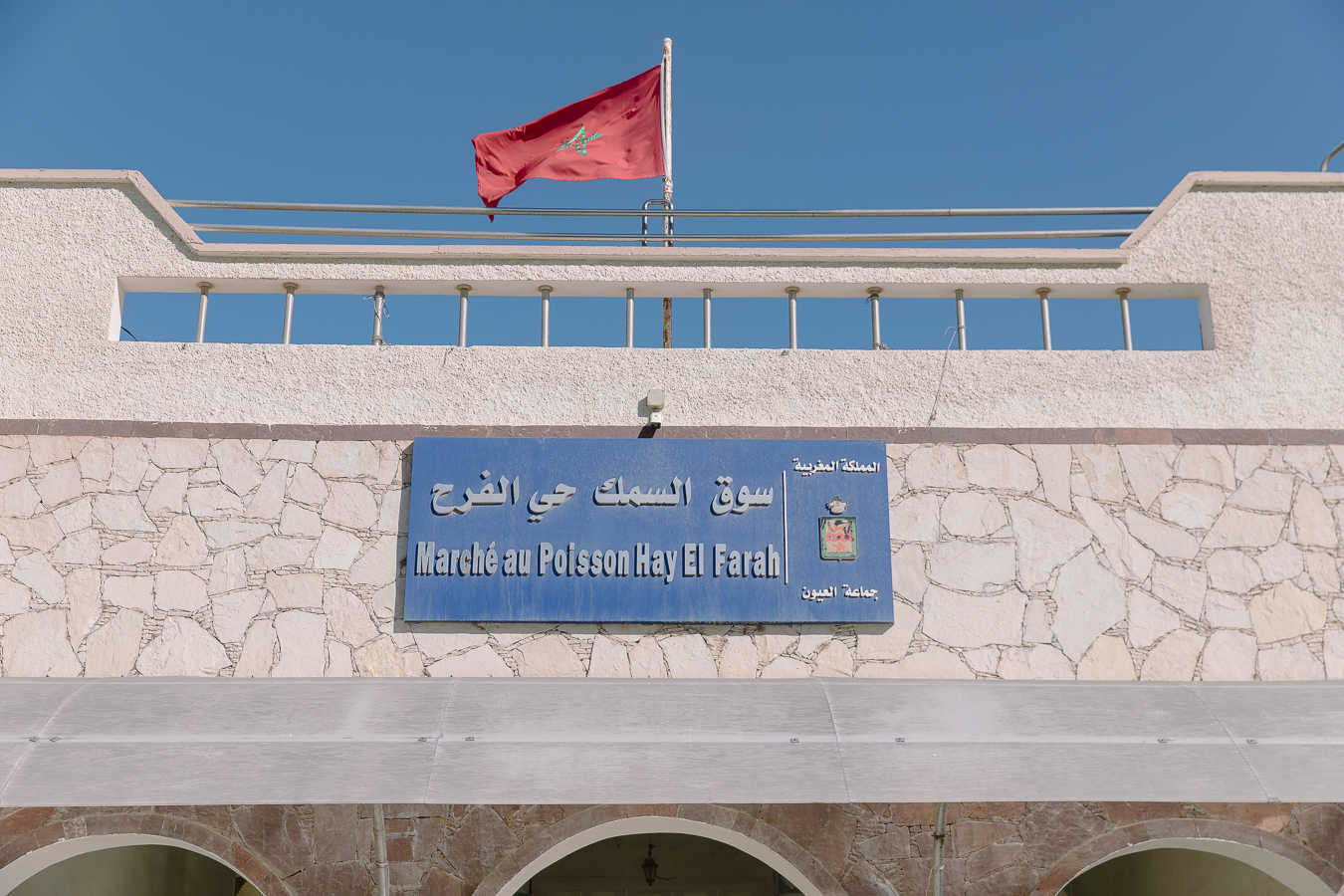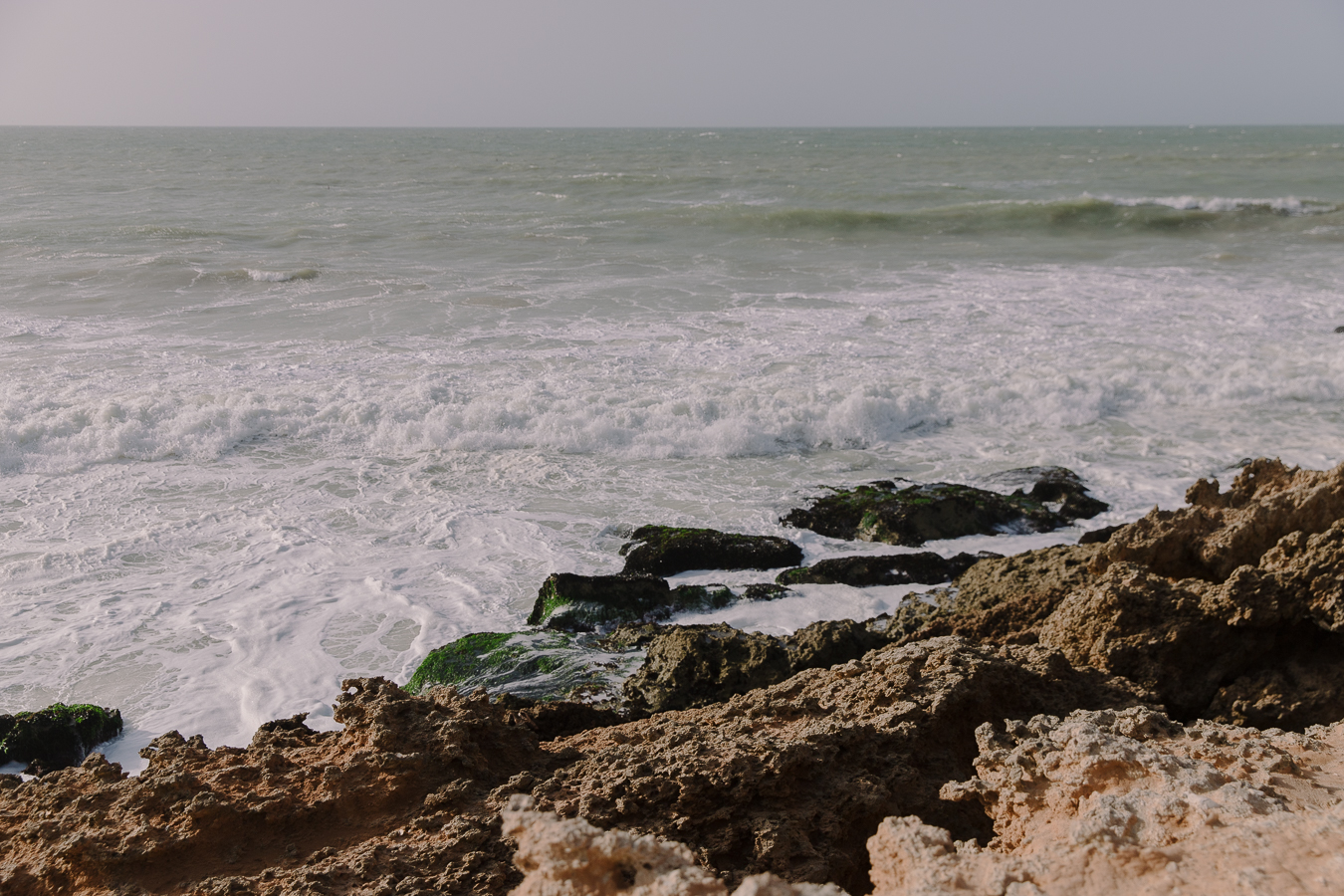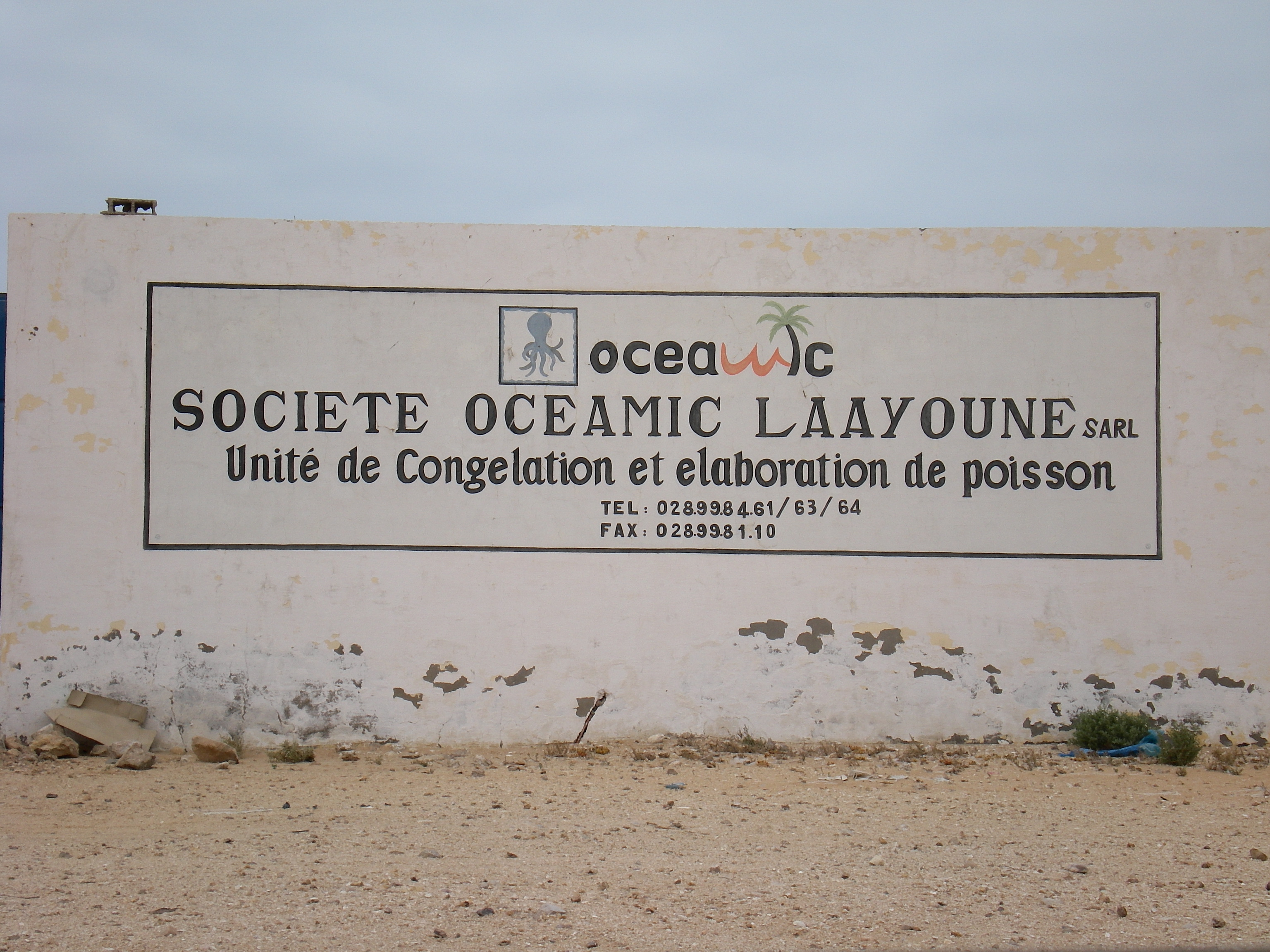
Despite repeated requests, the organisation does not clarify why its food safety certificate ignores legal boundaries.
The company Oceamic Laayoune II is among the BRCGS certified establishments in occupied Western Sahara. It is based on the same location, and part of the same group, as Oceamic Laayoune.
The UK company BRCGS, a short for Brand Reputation through Compliance - Global Standards, presents itself as one of the world's leading food safety certification schemes. Owned by LGC ASSURE, it provides audits meant to give retailers and consumers confidence that a product meets strict hygiene and quality requirements. Behind the polished image lies a system that is unresponsive, and - when it comes to Western Sahara - careless with facts such as where certified factories are actually located.
The result is that companies operating in occupied Western Sahara can obtain certificates labelled "Morocco," offering legitimacy to a trade that is based on an occupation.
If a product carries a BRCGS certificate, consumers should think twice. The credibility of the scheme is compromised by its acceptance of certificates containing false geographical information, its refusal to answer questions, and an overall lack of transparency.
Although BRCGS claims to guarantee food safety, the organisation's own standards are hidden behind paywalls and cannot be publicly scrutinised. Even companies that market BRCGS certification publicly may not actually hold valid certificates.
Western Sahara Resource Watch (WSRW) has identified nine establishments in the BRCGS certificate directory listed under "Morocco”, even though they are located in occupied Western Sahara - a territory that is not part of Morocco under international law. For a standard that is supposed to ensure compliance with national food safety legislation, getting the country wrong is not a minor administrative lapse.
None of the certification bodies responsible for these mistakes, nor the companies benefiting from them, replied to WSRW’s letters seeking explanation. The Moroccan fish exporting companies found in the BRCGS directory - all filed in the wrong country - include ERG Conserve (by Eurofins, 2024), Oceamic Laayoun E II Sarl (by Eurofins, 2025), Conserverie de Oued Eddahab (by Eurofins, 2025), ERG Delice SARL (by Eurofins, 2025), Gold Sea Fish SARL (by Eurofins, 2025), Conserveries Rio de Oro SARL (by SYGMA Certification SL, 2025), Nouvelle Conserverie de Boujdour SARL (by SYGMA Certification SL), Pelagic Pro SAS (by SYGMA Certification SL) and Damsa SA (by SYGMA Certification SL).
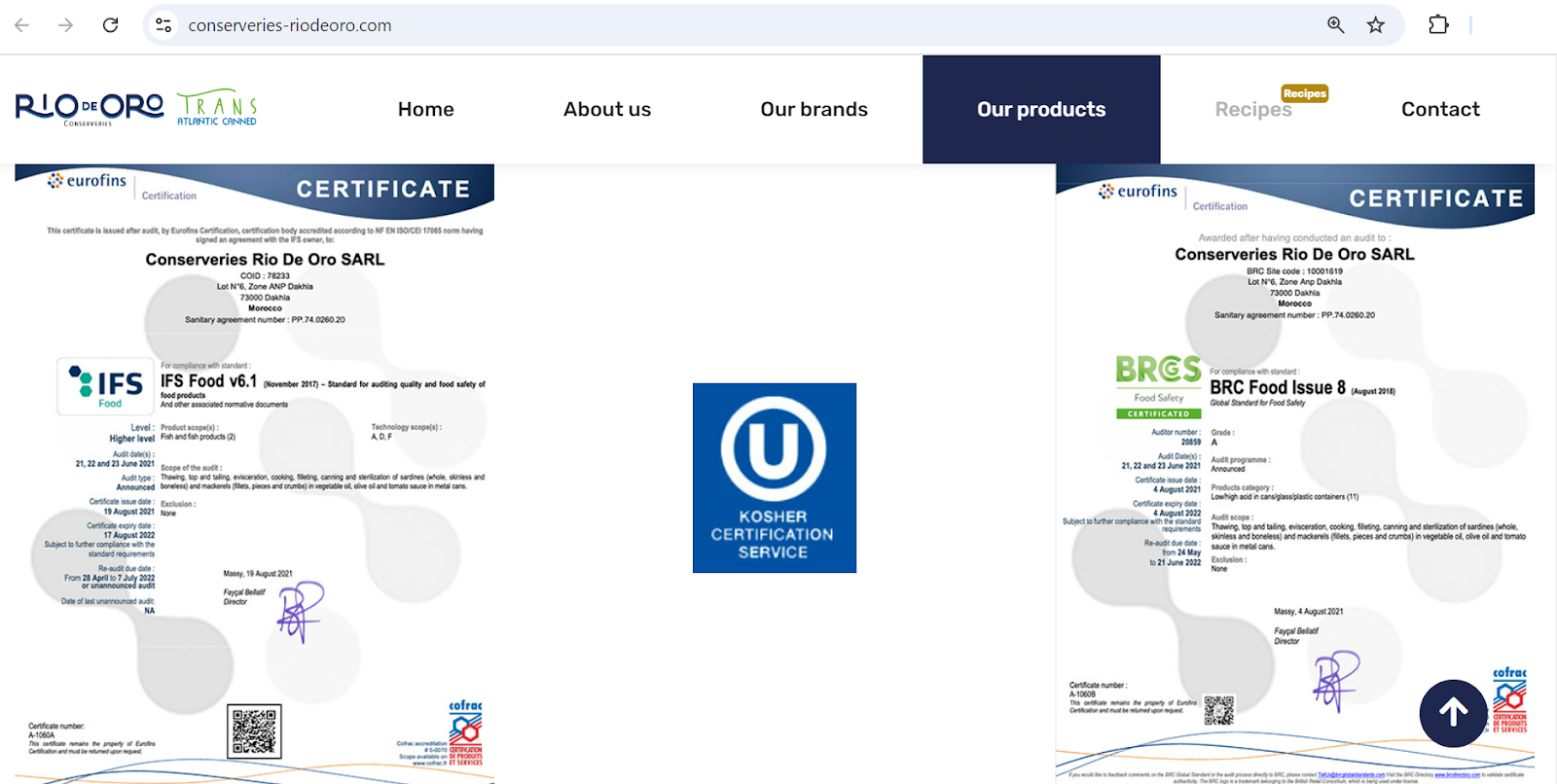
Earlier this week, WSRW reported on the French agricultural distributor Anima Group, which advertised that its supply chain was BRCGS certified. Yet WSRW was unable to locate any of its suppliers or reported subsidiaries in the BRCGS directory. After WSRW asked for documentation, Anima quickly scrubbed all references to BRCGS from its websites - without offering any explanation.
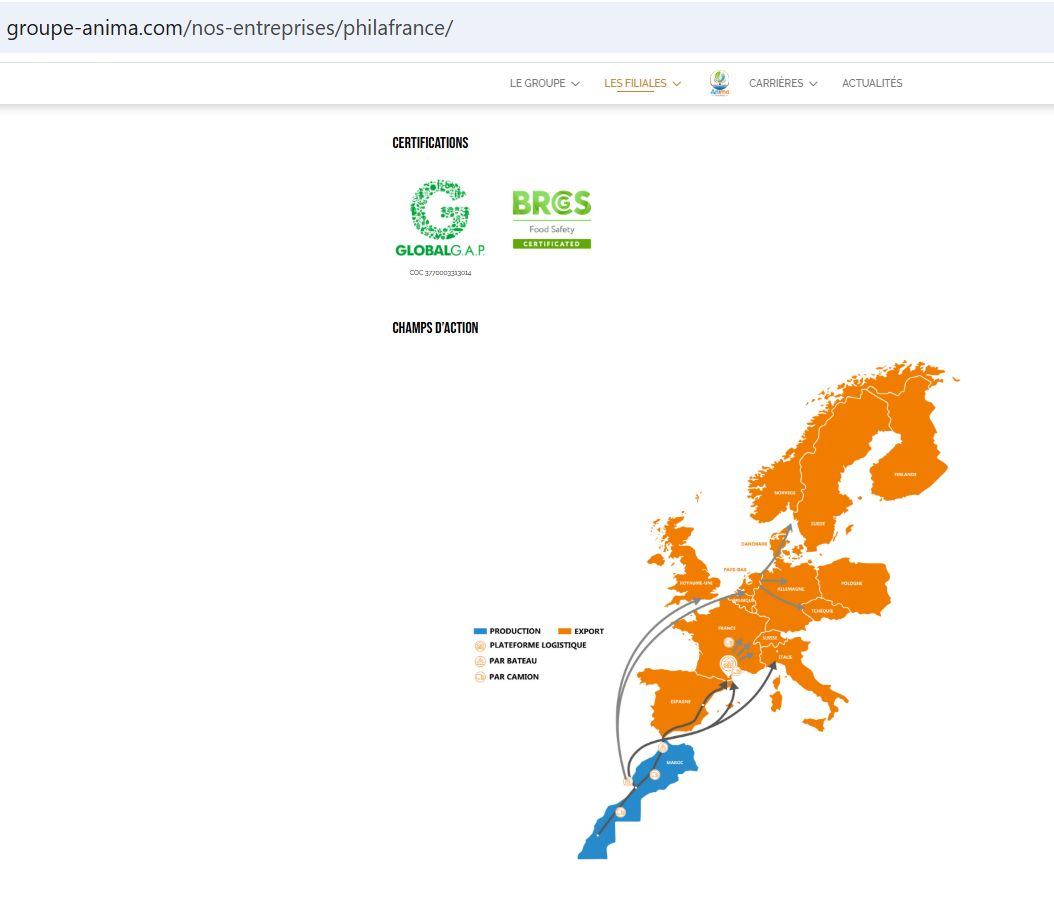
Another peculiar case concerns the Moroccan seafood company Comptoire Commercial et Industriel Derham (CCID), based in Dakhla. In February 2024, SYGMA Certification issued a BRCGS certificate to CCID with the incorrect country designation "Morocco." The certificate expired in February 2025 and CCID's listing was later removed from the registry. Despite this, the company still displays a BRCGS logo on its website - the outdated pre-2019 version - and references the certificate on its LinkedIn page. WSRW contacted CCID in December 2024 but has yet to receive a reply.
Although the BRCGS directory provides names of certified companies and their auditing bodies, it offers little clarity about what the certification actually requires. The Global Standard for Food Safety, Issue 9, must be purchased for £150; the interpretation guideline costs another £200 - placing essential information outside the reach of journalists, civil society, and consumers. Until October 2025, the certificate registry was public. It is now restricted behind a login system requiring users to register as a "company," further limiting oversight.
BRCGS itself remains seemingly unwilling to clarify any of these issues. WSRW wrote to the organisation in November 2024 and again in June 2025. In November 2025, WSRW contacted the company through its online form. The inquiries have not been answered.
WSRW believes that a certification scheme that cannot explain its own certificates - let alone correct elementary errors about the country where a factory is located - cannot be considered reliable. The findings raise serious doubts about whether BRCGS can meet its own promise: to guarantee that the products it certifies are safe, credible, and truthfully represented.
Since you're here....
WSRW’s work is being read and used more than ever. We work totally independently and to a large extent voluntarily. Our work takes time, dedication and diligence. But we do it because we believe it matters – and we hope you do too. We look for more monthly donors to support our work. If you'd like to contribute to our work – 3€, 5€, 8€ monthly… what you can spare – the future of WSRW would be much more secure. You can set up a monthly donation to WSRW quickly here.
New report: Certified occupation
International certification standards embellish Morocco’s controversial trade with fisheries and agricultural products in occupied Western Sahara, new report documents.
Certification giant SGS points fingers elsewhere
SGS blames everyone else for mistakes on MarinTrust certificates it had issued to Moroccan companies in occupied Western Sahara.
GMP+ does not check if “sustainable” fish is legally caught
The world’s largest certification scheme for “safe and sustainable animal feed” does not check whether its certified fish feed companies source from illegal fisheries in occupied Western Sahara, where catches violate the Saharawi people’s right to self-determination.
ASC withdraws from occupied Western Sahara
Certification scheme ends involvement with Azura Group and declares that no future certifications will be granted to companies in the occupied territory.


